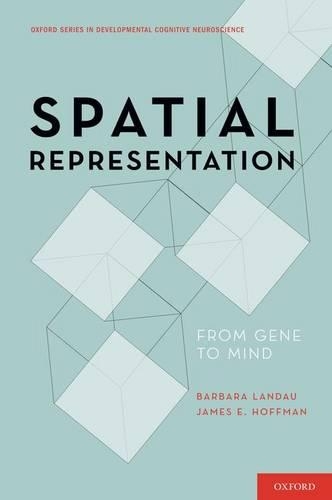
Spatial Representation: From Gene to Mind
Series: Developmental Cognitive Neuroscience
Our experience of the spatial world is a unitary one; we perceive objects and layouts, we remember them and act on them, and we can even talk about them with ease. Despite this impression of seamlessness, spatial representations in human adults appear to be specialized in domain-dependent manner, engaging different properties and computational mechanisms for different functions. In this book, the
NaN
VOLUME
English
Hardback

Our experience of the spatial world is a unitary one; we perceive objects and layouts, we remember them and act on them, and we can even talk about them with ease. Despite this impression of seamlessness, spatial representations in human adults appear to be specialized in domain-dependent manner, engaging different properties and computational mechanisms for different functions. In this book, the authors present evidence that this domain-specific specialization in cognitive function emerges early in development and is reflected in patterns of breakdown that occur under genetic defect. The authors focus on spatial representation in children and adults with Williams syndrome, a relatively rare genetic syndrome that gives rise to an unusual profile of severely impaired spatial representation together with spared language. Results from a variety of spatial domains -- including object representation, motion perception, action, navigation, and spatial language -- appear to display a strikingly uneven profile of sparing and deficit within spatial representations, consistent with the idea that specialization of function drives development and breakdown. These findings raise a crucial question: Can specific genes target specific aspects of cognitive structure? Looking deeper into the patterns of performance across spatial domains, the book explores the notion thatunderstanding patterns of normal development across domains is crucial to understanding unusual development. Using insights from normal development, the authors propose a speculative hypothesis that explains the emergence of the William syndrome profile, and how complex cognitive outcomes can arise from the deletion of a small set of genes.About the Author: Barbara Landau is a cognitive scientist who works on the representation of space and language and the mapping between the two systems. She has carried out work on normally developing children and normal adults, as well as children and adults with neurological impairment, including people with Williams syndrome. Before coming to Johns Hopkins University in 2001, she held faculty positions at Columbia University, University of California-Irvine, and the University of Delaware. In 2009, she was named a fellow of the John Simon Guggenheim Foundation and the American Academy of Arts and Sciences. She is also a fellow of the American Association for the Advancement of Science, the Cognitive Science Society, the Association for Psychological Science, and the American Psychological Association. James E. Hoffman is a Professor at the University of Delaware. He works on visual representation, especially the nature of attentional mechanisms in the brain, using traditional experimental methods as well as event-related potentials in the brain to measure attention. He is a fellow of the Association for Psychological Science.
Price Comparison [India]
In This Series
Bestseller Manga
Trending NEWS




















